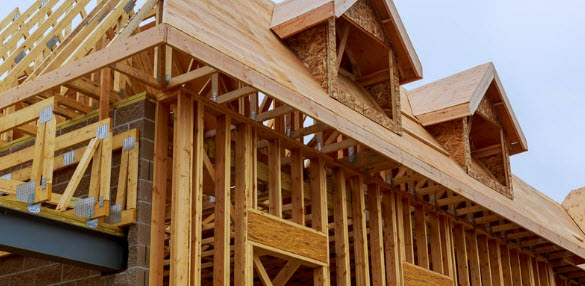Your credit score plays a pivotal role in determining whether you’ll be approved for a mortgage and the terms you’ll receive. Whether you’re a first-time homebuyer or refinancing, understanding how your credit score impacts your mortgage can help you secure the best possible rates. Here’s why your credit score is essential when applying for a mortgage.
Why Credit Scores Matter for Mortgages
Lenders use your credit score as a risk assessment tool. It’s a quick way to gauge your financial reliability. If your score is high, lenders assume you’re less likely to default on the loan, making you a safer investment. A low score, however, raises red flags that you may struggle with repayments, increasing their risk.
Here’s how your credit score affects different aspects of the mortgage process:
Loan approval: Lenders have minimum credit score requirements. If your score is too low, you may be denied outright.
Interest rates: The higher your credit score, the lower your interest rate. Even a slight improvement in your score can translate into thousands of dollars in savings over the life of your loan.
Down payment: Some lenders may require a larger down payment if your credit score is on the lower side to offset their risk.
Credit Score Tiers and Mortgage Options
Credit scores are typically broken down into several tiers:
Credit Score Range | Category | Likely Mortgage Outcome |
760+ | Excellent | Lowest interest rates, high loan approval chance |
700-759 | Very Good | Competitive rates, easy approval |
660-699 | Good | Average rates, reasonable approval |
620-659 | Fair | Higher interest rates, some difficulty with approval |
Below 620 | Poor | Limited options, high rates, possible denial |
Even a few points can make a huge difference in your mortgage terms. It’s worth your time to boost your score as much as possible before applying for a mortgage.
How to Improve Your Credit Score for a Mortgage
If your credit score isn’t where you want it to be, don’t worry. You can take steps to improve it. Here are some tips to get started:
Pay down debt: Lowering your credit card balances will improve your credit utilization ratio, boosting your score.
Pay bills on time: Even a single late payment can significantly damage your score. Set reminders or automate payments to avoid this.
Avoid opening new credit accounts: Each new inquiry can lower your score slightly. Focus on maintaining your existing accounts instead.
Check for errors: Review your credit report for any mistakes that could be negatively affecting your score. Dispute inaccuracies to clean up your report.
Pros and Cons of Applying for a Mortgage with Different Credit Scores
Credit Score Tier | Pros | Cons |
Excellent (760+) | Best interest rates, flexible loan terms, faster approval | May not qualify for low-income or government-backed programs |
Good (700-759) | Competitive rates, solid approval odds | Could still miss out on the very best rates |
Fair (620-699) | Can still qualify for some loans | Higher interest rates, possible need for larger down payment |
Poor (Below 620) | Possible with FHA loans or subprime lenders | Very high rates, larger down payment, limited loan options |
Unlock the potential of your credit score with your Home Wealth Blueprint, powered by HomeLoanAdvisor’s cutting-edge property insights. Receive personalized mortgage solutions and recommendations tailored to your financial goals.
FAQs
1. What credit score is needed to get the best mortgage rates?
A score of 760 or higher is typically needed for the best rates.
2. Can I get a mortgage with a score below 620?
Yes, but you may need to explore FHA loans or subprime lenders, both of which come with higher rates and down payments.
3. How much can a good credit score save me on my mortgage?
Even a 0.5% difference in interest rates can save you tens of thousands over a 30-year mortgage.
4. How long does it take to improve a credit score?
Improving your score could take anywhere from a few months to a year, depending on the severity of your credit issues.
5. Do mortgage lenders check all three credit bureaus?
Most lenders will pull a tri-merge credit report, which includes scores from Equifax, Experian, and TransUnion.
6. Does applying for a mortgage hurt my credit score?
Yes, but the impact is small (usually 5 points or less). Multiple inquiries within a short period are typically counted as one.
7. Can I buy a house without a credit score?
It’s challenging, but possible through alternative credit scoring models or specialized loan programs.
8. Will closing credit cards hurt my score before applying for a mortgage?
Yes, closing cards can reduce your available credit and hurt your utilization ratio.
9. Should I pay off all debt before applying for a mortgage?
Paying down revolving credit (like credit cards) helps more than paying off installment loans, which can boost your score slightly.
10. Can I still refinance my mortgage if my credit score drops?
Yes, but your rates and terms may not be as favorable compared to having a higher score.



